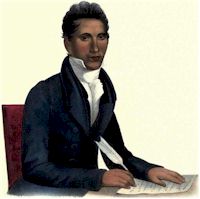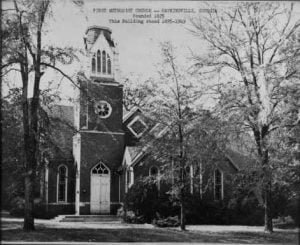In Possession Of The “Promised Land”
Monday, Nov. 22, 1819.–This day breakfasted with Mr. R. Morrison and dined with Mr. W. Morrison. These gentlemen are wealthy and live in very comfortable style. Mrs. R. Morrison is one of the most intelligent women that I have conversed with, and possesses a lady’s privilege, while Mrs. W. Morrison might rank, in point of beauty with some of the belles of Philadelphia. Dr. Hill having accomplished his business, we set out from Kaskia at 2 o’clock, after bidding a friendly farewell to many new friends made in this place. I must confess I found a few possessing so much … Read more


